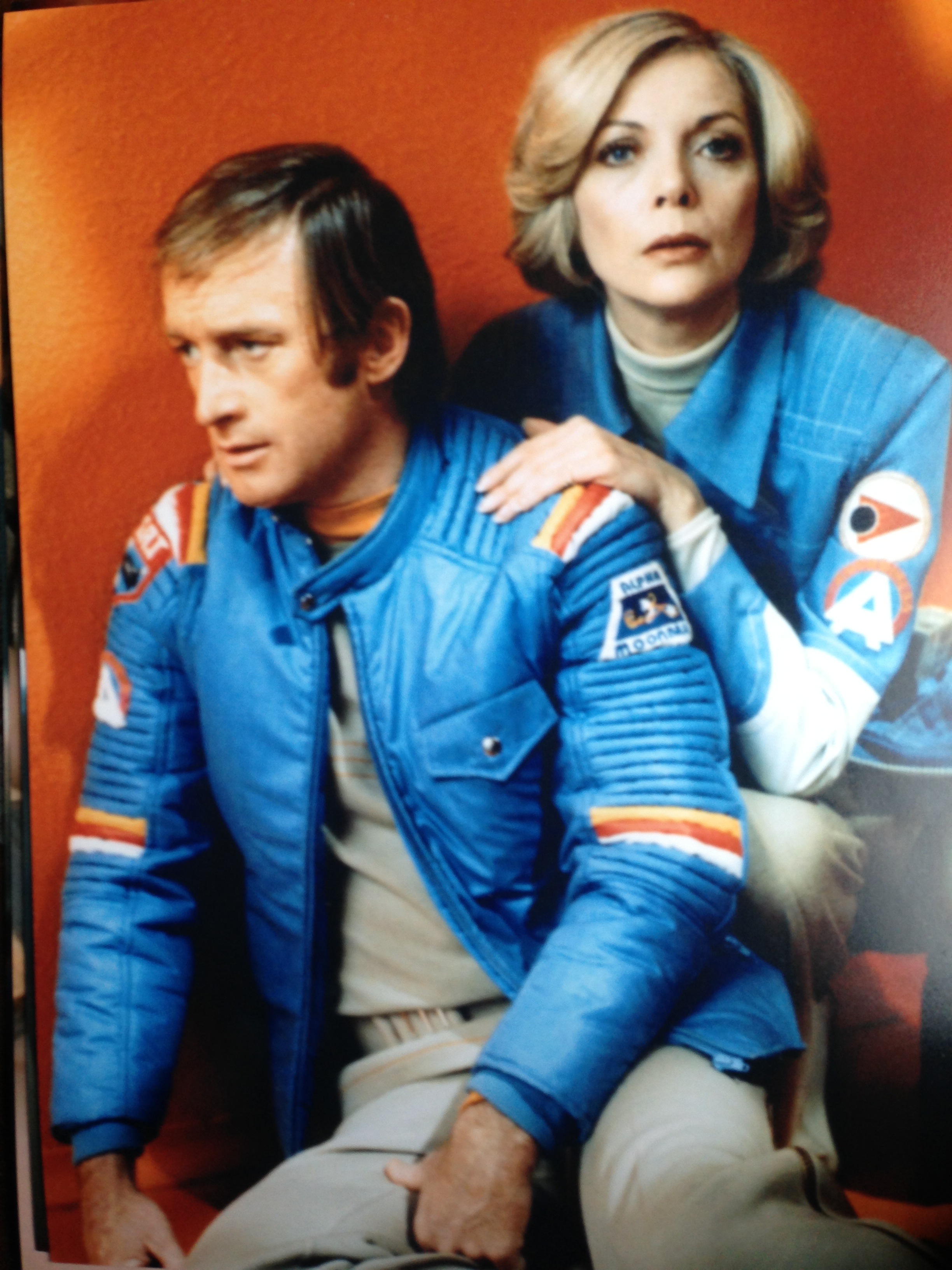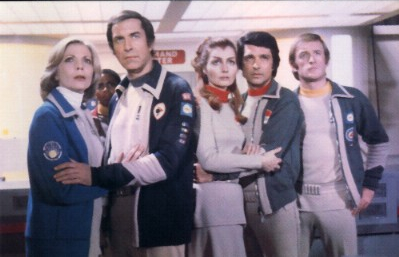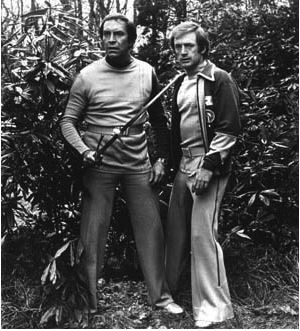Space: 1999 is a British science-fiction television series that originally aired from 1975 to 1977. In the opening episode, nuclear waste from Earth stored on the Moon’s far side explodes in a catastrophic accident on 13 September 1999, knocking the Moon out of orbit and sending it and the 311 inhabitants of Moonbase Alpha hurtling uncontrollably into space. The series was the last production by the partnership of Gerry and Sylvia Anderson.
Where to watch Space: 1999
Where to find Space: 1999 Merchandise
Imagine, if you will, an Earth where history did not write that we pulled back after the Apollo missions to the Moon; that we did not turn giant leaps forward into tiny, hesitant, almost backwards crawling motions. Instead, imagine history wrote that after we took those first few steps, we continued taking more, even bolder leaps, expanding lunar exploration, sending ever-increasing numbers of missions – robotic and human crewed – into the rest of the solar system.
Disasters only increased our international resolve, especially after a brief but nearly catastrophic war that vividly reminded us of the value of life, and prompted unprecedented multicultural, international cooperation that sped up humanity’s progress into space.
By the year 1999, humanity had invented new and more powerful spaceships (including one type named in honor of the first manned lunar lander – “Eagle”), partially domesticated the forces of artificial gravitiy, taken up permanent residence on the Moon, and was on the verge of launching the first people beyond the confines of our solar system. We were also dealing with the difficult problem of what to do with massive amounts of nuclear waste. years before, we had begun storing it in special dumps on the far side of the Moon.
This is where Space: 1999 begins.
As the countdown to the launch of humanity’s first extra-solar spaceship continues, a new commander is sent to Moonbase Alpha to deal with a deadly situation threatening the launch; while no one is aware that another, more sinister countdown is already underway, one that is set to reach zero much sooner, and affect far more than the mission. People have been dying on Moonbase Alpha, and the new commander quickly finds the very administrator who assigned him to deal with the situation has also been obscuring its severity.
Once it becomes clear that the warning signs point to an overlooked form of chain reaction building up in the nuclear waste dumps, they try to stop it. The futility of their attempts becomes horrifyingly clear in the lights of a sudden false dawn of an enormous nuclear explosion, which in its minute long burn acts as a tremendous engine, propelling the Moon out of the solar system, to begin an incredible – however unexpected and involuntary – journey of discovery. They become castaways on a fast floating island – a Moon they can rarely control – encountering alien beings and forces, as well as other human or no longer quite-so-human castaways.
The Alphans have only their wits, hope, and limited resources to use as they try to survive in a sometimes friendly, but often indifferent or hostile universe; one that is filled with a bewildering array of aliens ranging from the near human to the bizarre or even horrifying, to the virtually incomprehensible. The Alphans are told by one alien that their “odyssey shall know no end” and that they “will prosper and increase in new worlds”; while others tell them they “have no future”, and are “a contaminating organism – a fatal virus.” Is there any truth to be found?
Almost completely cut off from an Earth which itself is dying, they struggle to find a hospitable planet to settle on; trying to escape their confined, almost sterile moonbase where survival is on a knife’s edge. The wearying damage they continue to take – physically, mentally and emotionally – threatens to drive them to madness or extinction.






































